Part of the MIT Climate Action Plan
MIT Climate Symposia: Symposium Four
Economy-wide Deep Decarbonization: Beyond Electricity
February 25, 2020
Chairs: Ernest Moniz and Kristala Prather, MIT
The fourth of MIT’s six Climate Action Symposia, Economy-wide Deep Decarbonization: Beyond Electricity, was held on Tuesday, February 25, 2020. Topics included:
- pathways to scalable, affordable low- to no-carbon fuels;
- the role of biofuels, hydrogen, and long-term energy storage; and
- large-scale capture of carbon dioxide and gigaton-scale utilization.
Schedule
5:00 pm
Framing remarks: Net carbon neutrality by mid-century?
Ernest Moniz, MIT
- Slides
- Clearing the Air Executive Summary
- Clearing the Air Report
- Optionality, Flexibility & Innovation Executive Summary
- Optionality, Flexibility & Innovation Report
5:15 pm
Decarbonizing transportation and industry
Panel I: Electrification of transportation
Moderator: Ernest Moniz, MIT
Speakers:
Interactive Discussion with Audience Questions
Panel II: Low-carbon fuels
Moderator: Ernest Moniz, MIT
Speakers:
- Kristala Prather, MIT
- Francis O’Sullivan, Orsted Onshore North America and MIT
Interactive Discussion with Audience Questions
6:35 pm
Break
6:45 pm
Large-scale carbon management and negative carbon
Moderator: Kristala Prather, MIT
Speakers:
- Howard Herzog, MIT
- Ruben Juanes, MIT
- Arun Majumdar, Stanford
Interactive Discussion with Audience Questions
7:45 pm
Closing Perspectives
Susan Hockfield, MIT
Speakers
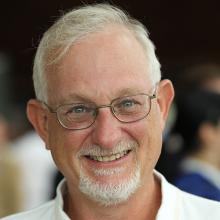
Howard Herzog is a senior research engineer in the MIT Energy Initiative, where he works on sponsored research involving energy and the environment, with an emphasis on greenhouse gas mitigation technologies. He is also the executive director of the Carbon Capture, Utilization, and Storage Center, an MIT Energy Initiative Low-Carbon Energy Center.
He received his undergraduate and graduate education in chemical engineering at MIT. He was a Coordinating Lead Author for the IPCC Special Report on Carbon Dioxide Capture and Storage and a co-author on the MIT Future of Coal study. He was awarded the 2010 Greenman Award by the IEAGHG "in recognition of contributions made to the development of greenhouse gas control technologies". In 2018, he authored a book entitled Carbon Capture for the MIT Press Essential Knowledge Series.
Susan Hockfield served from 2004 to 2012 as the sixteenth president of MIT, the first life scientist and first woman in that role. She is now President Emerita, Professor of Neuroscience and a member of the Koch Institute for Integrative Cancer Research. As president, Hockfield strengthened the foundations of MIT’s finances and campus planning while advancing Institute-wide programs in sustainable energy and the convergence of the life, physical and engineering sciences.
Hockfield helped shape national policy for energy and next-generation manufacturing, appointed by President Obama in 2011 to co-chair the steering committee of the Advanced Manufacturing Partnership and by serving as a member of a Congressional Commission evaluating the Department of Energy laboratories in 2015.
As a biologist, she pioneered the use of monoclonal antibody technology in brain research, identifying proteins through which neural activity early in life affect brain development. Prior to MIT, she was the William Edward Gilbert Professor of Neurobiology, Dean of the Graduate School of Arts and Sciences (1998-2002), and Provost (2003-2004) at Yale University. She studied at the University of Rochester and Georgetown University and carried out research at the NIH and UCSF before joining the faculty at the Cold Spring Harbor Laboratory and then Yale. She has published extensively, in scientific and public media. She is the past president and chairman of the American Association for the Advancement of Science and currently serves as a director of Partners HealthCare System, is a life member of the MIT Corporation, and a board member of the Belfer Center at the Harvard Kennedy School.
Ruben Juanes is a geoscientist with a strong interest in the physics of multiphase flow in porous media. His research focuses on advancing our fundamental understanding and predictive capabilities of the simultaneous flow of two or more fluids through rocks, soils and other porous materials.
Research in the Juanes Group combines theory, simulation and experiments that elucidate fundamental aspects of multi-fluid flow, which we then apply for prediction of large-scale Earth science problems in the areas of energy and the environment, including geological carbon sequestration, methane hydrates, and ecohydrology of arid environments.
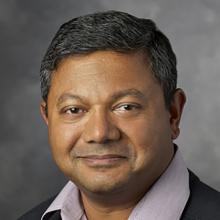
Arun Majumdar is the Jay Precourt Provostial Chair Professor at Stanford University, a faculty member of the Departments of Mechanical Engineering and Materials Science and Engineering (by courtesy) and co-director of the Precourt Institute for Energy, which integrates and coordinates research and education activities across all seven Schools and the Hoover Institution at Stanford. He is also a faculty in Department of Photon Science at SLAC.
Majumdar's research in the past has involved the science and engineering of nanoscale materials and devices, especially in the areas of energy conversion, transport and storage as well as biomolecular analysis. His current research focuses on electrochemical and thermochemical redox reactions that are fundamental to a sustainable energy future, multidimensional nanoscale imaging and microscopy, and a new effort to re-engineer the electricity grid using data science, including deep learning techniques.
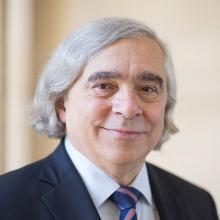
Ernest Moniz served as the thirteenth United States Secretary of Energy from 2013 to January 2017. As Secretary, he advanced energy technology innovation, nuclear security and strategic stability, cutting-edge capabilities for the American scientific research community, and environmental stewardship. He placed energy science and technology innovation at the center of the global response to climate change and negotiated the Iran nuclear agreement alongside the Secretary of State.
Moniz joined the MIT faculty in 1973 and was Founding Director of the MIT Energy Initiative. He is the Cecil and Ida Green Professor of Physics and Engineering Systems emeritus and Special Advisor to the MIT President. Moniz is co-chairman of the Board of Directors and CEO of the Nuclear Threat Initiative and CEO of the Energy Futures Initiative.
Moniz received a Bachelor of Science degree summa cum laude in physics from Boston College, a doctorate in theoretical physics from Stanford University, and ten honorary doctorates from American and European universities. Among other awards, he received the Distinguished Public Service Medal of the Department of Defense, the Grand Cross of the Orders of Makarios III (Cyprus) and of Prince Henry the Navigator (Portugal), the Grand Cordon of the Order of the Rising Sun (Japan), and the inaugural Award for Excellence in Public Policy and Public Affairs of the American Academy of Arts and Science.
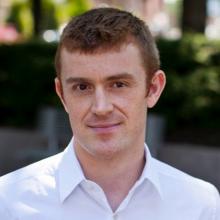
Francis O’Sullivan is Senior Vice President, Strategy at Orsted Onshore North America. Frank is also an adjunct faculty member at the MIT Sloan School of Management. Prior to joining Orsted, Frank was Director of Research and Analysis for the MIT Energy Initiative and co-director of the MIT Electric Power System Center, an MIT Energy Initiative Low-Carbon Energy Center.
In his role at Orsted, Frank is responsible for long-term markets analysis and modelling to support Orsted’s investment program in the North American onshore wind, solar and storage sectors. Frank also leads activities focused on early-stage market and technology incubation, including Orsted’s storage business.
Prior to Orsted and MIT, O’Sullivan was a senior consultant with McKinsey & Company. Frank received his PhD, EE, and SM degrees from MIT, and his BE degree from the National University of Ireland, all in electrical engineering.

Kristala Prather is the Arthur D. Little Professor of Chemical Engineering at MIT. She received an S.B. degree from MIT in 1994 and Ph.D. from the University of California, Berkeley (1999), and worked 4 years in BioProcess Research and Development at the Merck Research Labs prior to joining MIT. Her research interests are centered on the design and assembly of recombinant microorganisms for the production of small molecules, with additional efforts in novel bioprocess design approaches. A particular focus is the elucidation of design principles for the production of unnatural organic compounds with engineered control of metabolic flux within the framework of the burgeoning field of synthetic biology. Prather is the recipient of an Office of Naval Research Young Investigator Award (2005), a Technology Review “TR35” Young Innovator Award (2007), a National Science Foundation CAREER Award (2010), the Biochemical Engineering Journal Young Investigator Award (2011), and the Charles Thom Award of the Society for Industrial Microbiology and Biotechnology (2017). Additional honors include selection as the Van Ness Lecturer at Rensselaer Polytechnic Institute (2012), as a Fellow of the Radcliffe Institute for Advanced Study (2014-2015), and as a Fellow of the American Association for the Advancement of Science (AAAS; 2018).
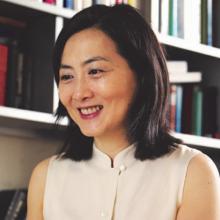
Yang Shao-Horn is the W.M. Keck Professor of Energy at MIT. She holds joint appointments in the Department of Mechanical Engineering, the Department of Materials Science and Engineering, and the Research Laboratory of Electronics, and has been a faculty member since 2002. Shao-Horn is also co-director of the Energy Storage Center, an MIT Energy Initiative Low-Carbon Energy Center.
Shao-Horn’s research is centered on exploiting chemical/materials physics and physical/materials chemistry principles to understand charge transfer at the solid-gas/liquid interface to design and control the kinetics of (electro)chemical reactions and ion mobility in solids and liquids for storing electrons and making chemicals/fuels. Shao-Horn and coworkers have pioneered the use of electronic structure of oxides to develop universal guiding principles, design catalytic activity and stability across reactions from oxidation of air pollutants, to making of sustainable/solar fuels such as water splitting, CO2 reduction, and nitrogen reduction.
She was elected as a member of the National Academy of Engineering and awarded the Faraday Medal by the Royal Society of Chemistry. Shao-Horn is among the World’s Most Influential Scientific Minds and Highly Cited Researchers.
John Wall has more than 40 years of industry experience in internal combustion engine technology, fuels and emissions, and in global engineering organization development. Most recently, John served as Chief Technical Officer of Cummins Inc., the world's largest independent manufacturer of diesel engines and related technologies, retiring in 2015. Prior to joining Cummins in 1986, John led Diesel and Aviation Fuels Research for Chevron, where his team was first to discover the important contribution of fuel sulfur to diesel particulate emissions. He is currently an advisor to the DOE Joint BioEnergy Institute and Cyclotron Road energy incubator, to the International Council of Clean Transportation and to the Institute of Transportation Studies at UC-Davis, and is chair of the Board of Achates Power. He is a member of the National Academy of Engineering and has been recognized with the California Air Resources Board Haagen-Smit Clean Air Award and US EPA Thomas W. Zosel Individual Achievement Award for career accomplishments in diesel emission control. John studied mechanical engineering at MIT, where he received his SB and SM degrees from the Mechanical Engineering Honors Program in 1975 and ScD in 1978.


